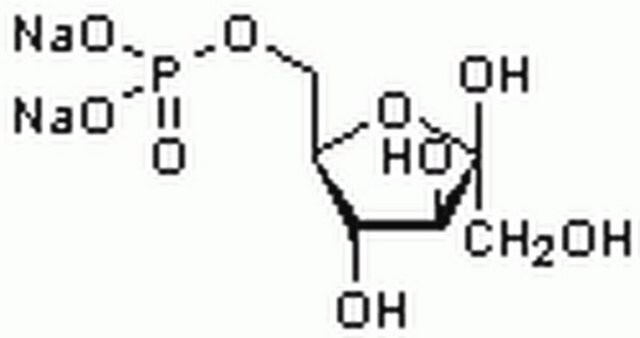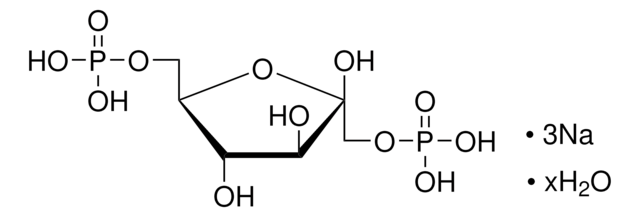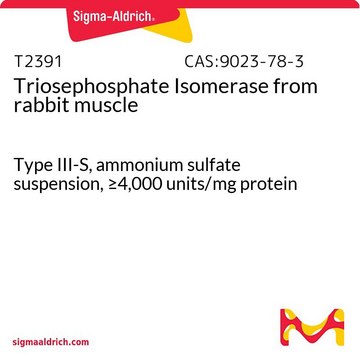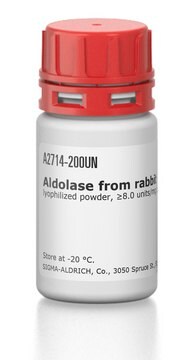F0137
Fructose-6-phosphate Kinase from Bacillus stearothermophilus
Type VII, lyophilized powder, ≥50 units/mg protein
Synonym(e):
6-Phosphofructokinase, ATP:D-fructose 6-phosphate 1-phosphotransferase
About This Item
Empfohlene Produkte
Typ
Type VII
Form
lyophilized powder
Spezifische Aktivität
≥50 units/mg protein
Mol-Gew.
34 kDa
Versandbedingung
wet ice
Lagertemp.
−20°C
Allgemeine Beschreibung
Bacillus stearothermophilus phosphofructokinase (BsPFK) is a homotetramer that is allosterically inhibited by phosphoenolpyruvate (PEP), which binds along one dimer-dimer interface.
Anwendung
- in steady state analysis of phosphofructokinase activity in the presence of ATP deuterated at the C8 position(C8-D ATP)
- for standard curve generation for quantifying muscle phosphofructokinase (PFK) activity
Biochem./physiol. Wirkung
Einheitendefinition
Physikalische Form
Lagerklassenschlüssel
11 - Combustible Solids
WGK
WGK 3
Flammpunkt (°F)
Not applicable
Flammpunkt (°C)
Not applicable
Persönliche Schutzausrüstung
Eyeshields, Gloves, type N95 (US)
Analysenzertifikate (COA)
Suchen Sie nach Analysenzertifikate (COA), indem Sie die Lot-/Chargennummer des Produkts eingeben. Lot- und Chargennummern sind auf dem Produktetikett hinter den Wörtern ‘Lot’ oder ‘Batch’ (Lot oder Charge) zu finden.
Besitzen Sie dieses Produkt bereits?
In der Dokumentenbibliothek finden Sie die Dokumentation zu den Produkten, die Sie kürzlich erworben haben.
Kunden haben sich ebenfalls angesehen
Unser Team von Wissenschaftlern verfügt über Erfahrung in allen Forschungsbereichen einschließlich Life Science, Materialwissenschaften, chemischer Synthese, Chromatographie, Analytik und vielen mehr..
Setzen Sie sich mit dem technischen Dienst in Verbindung.










